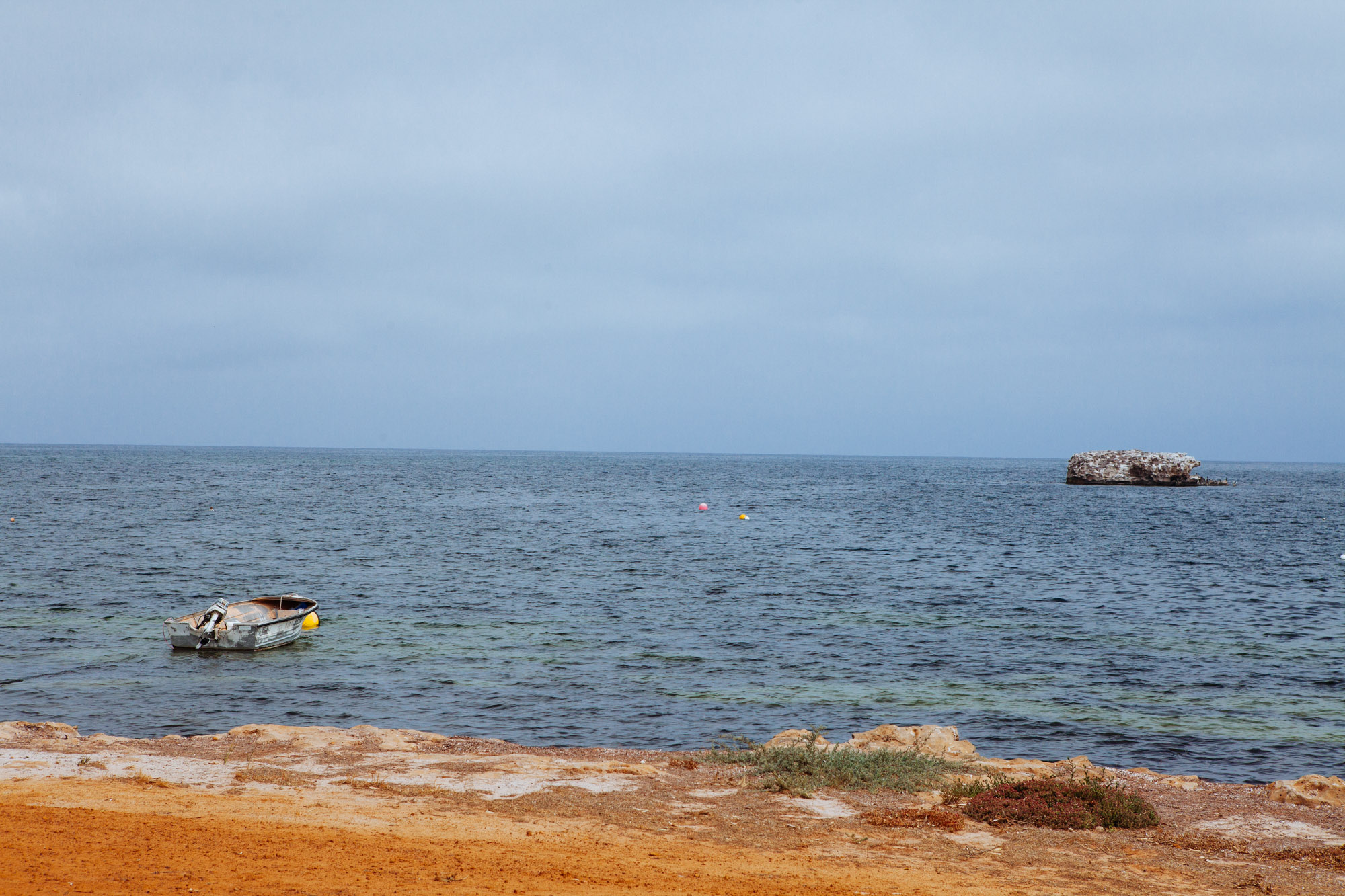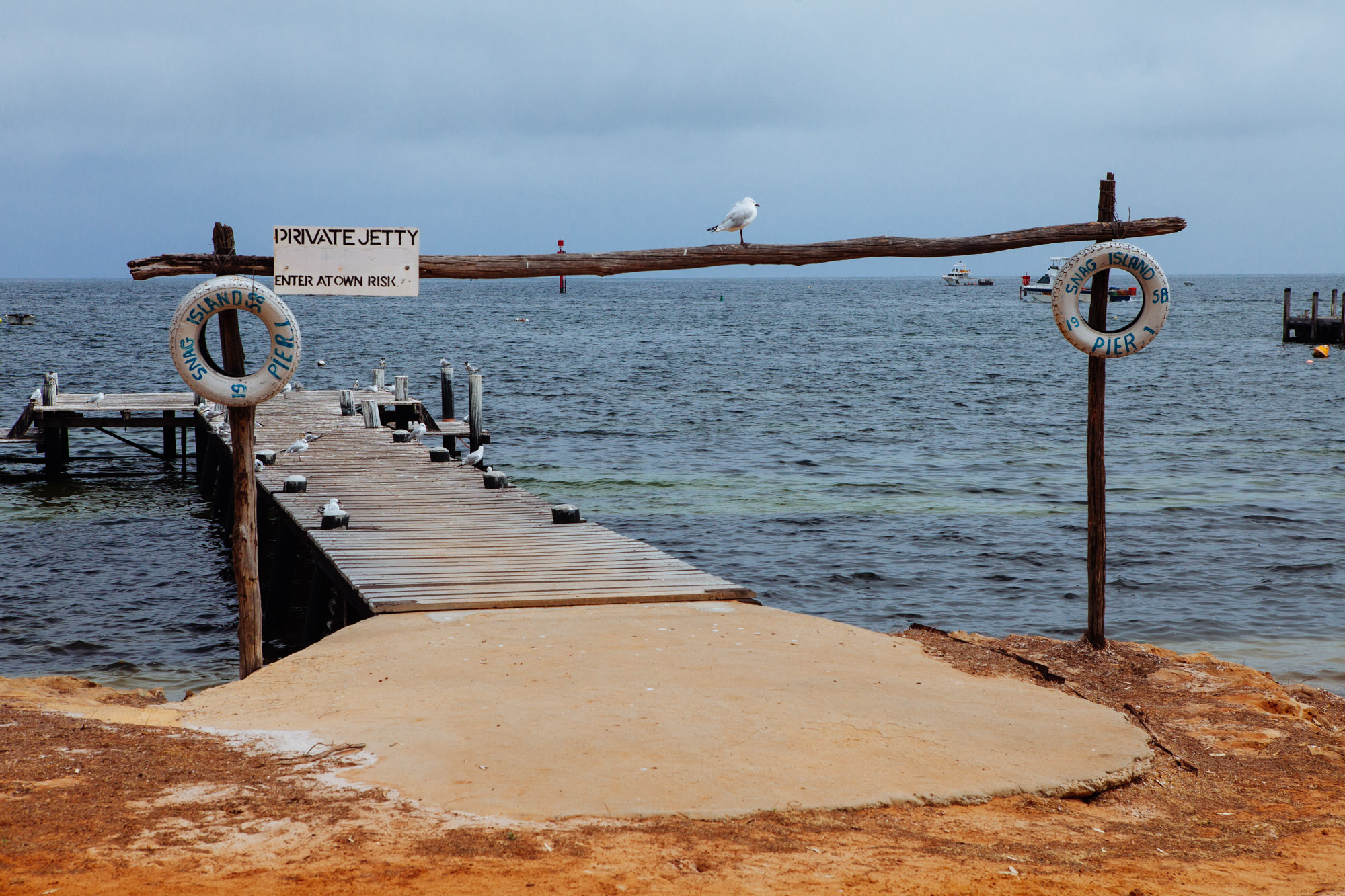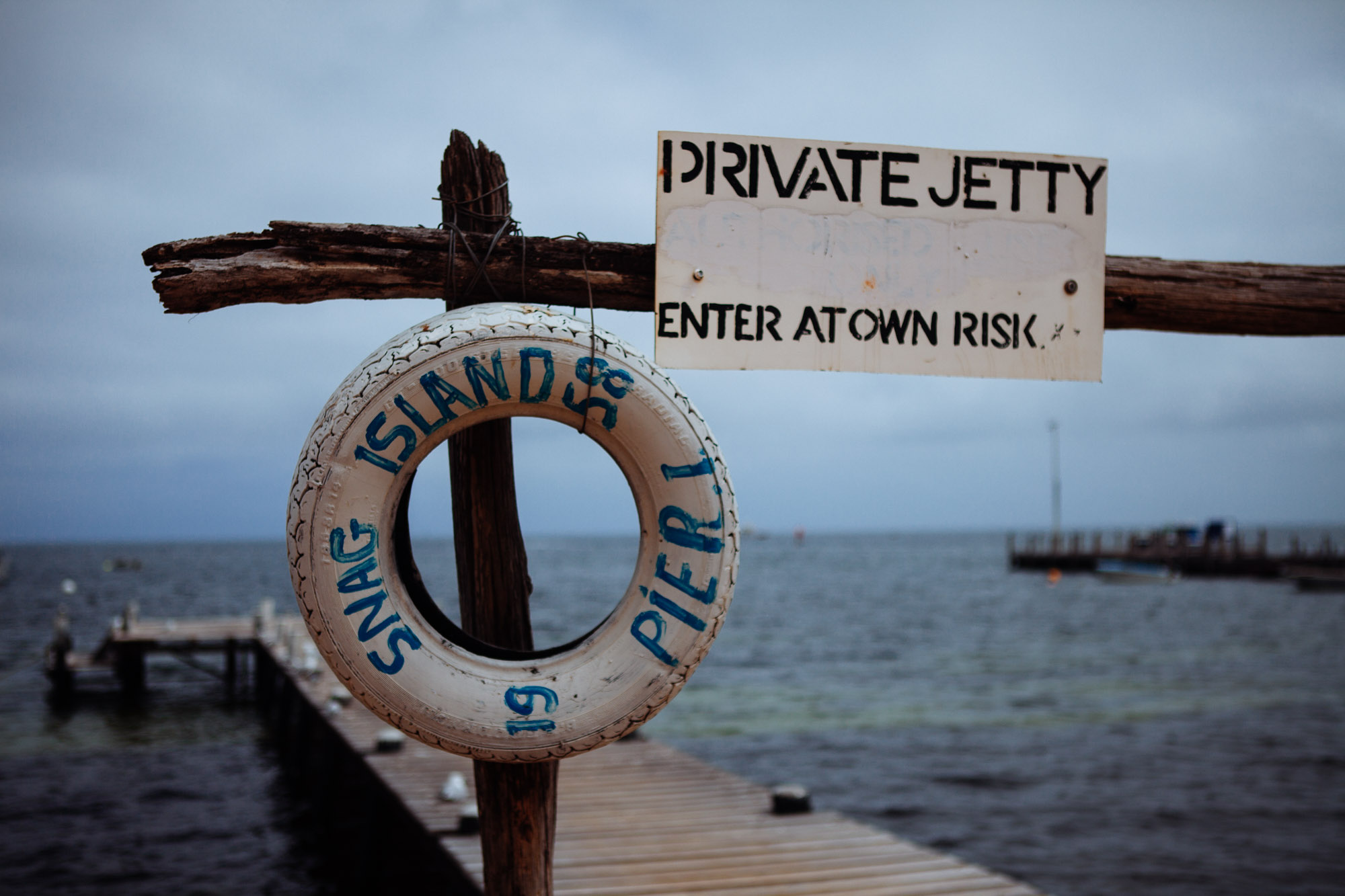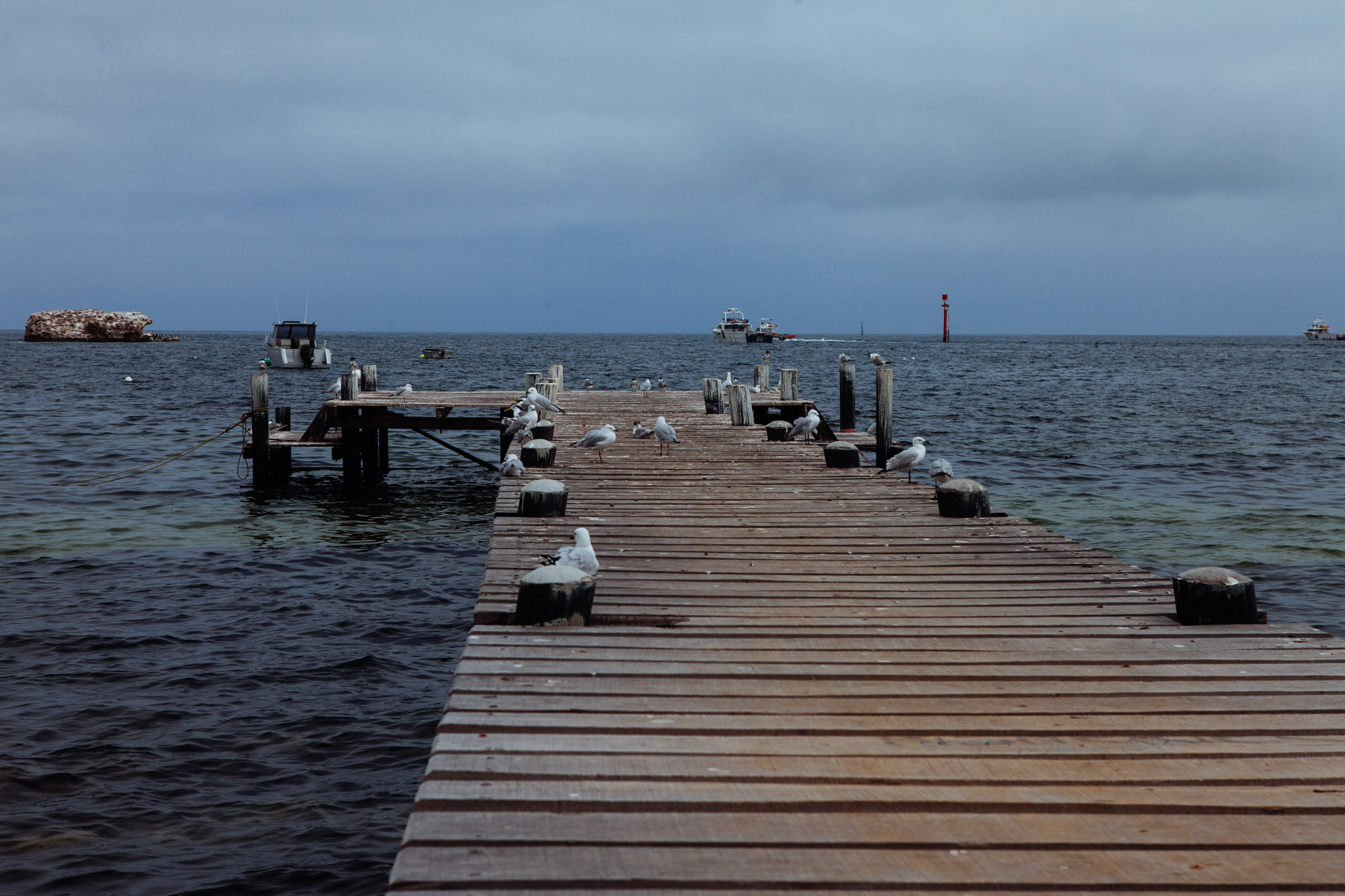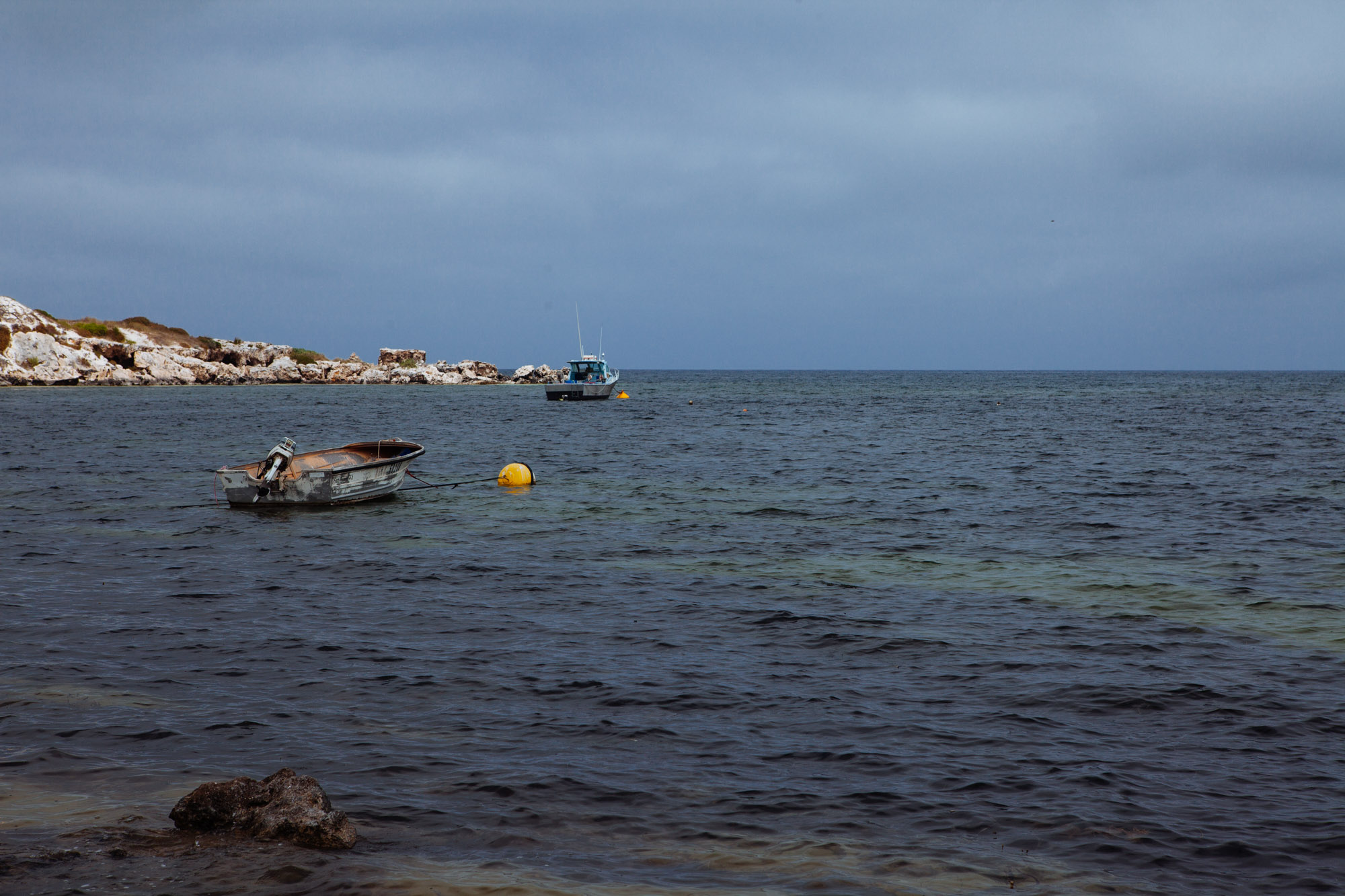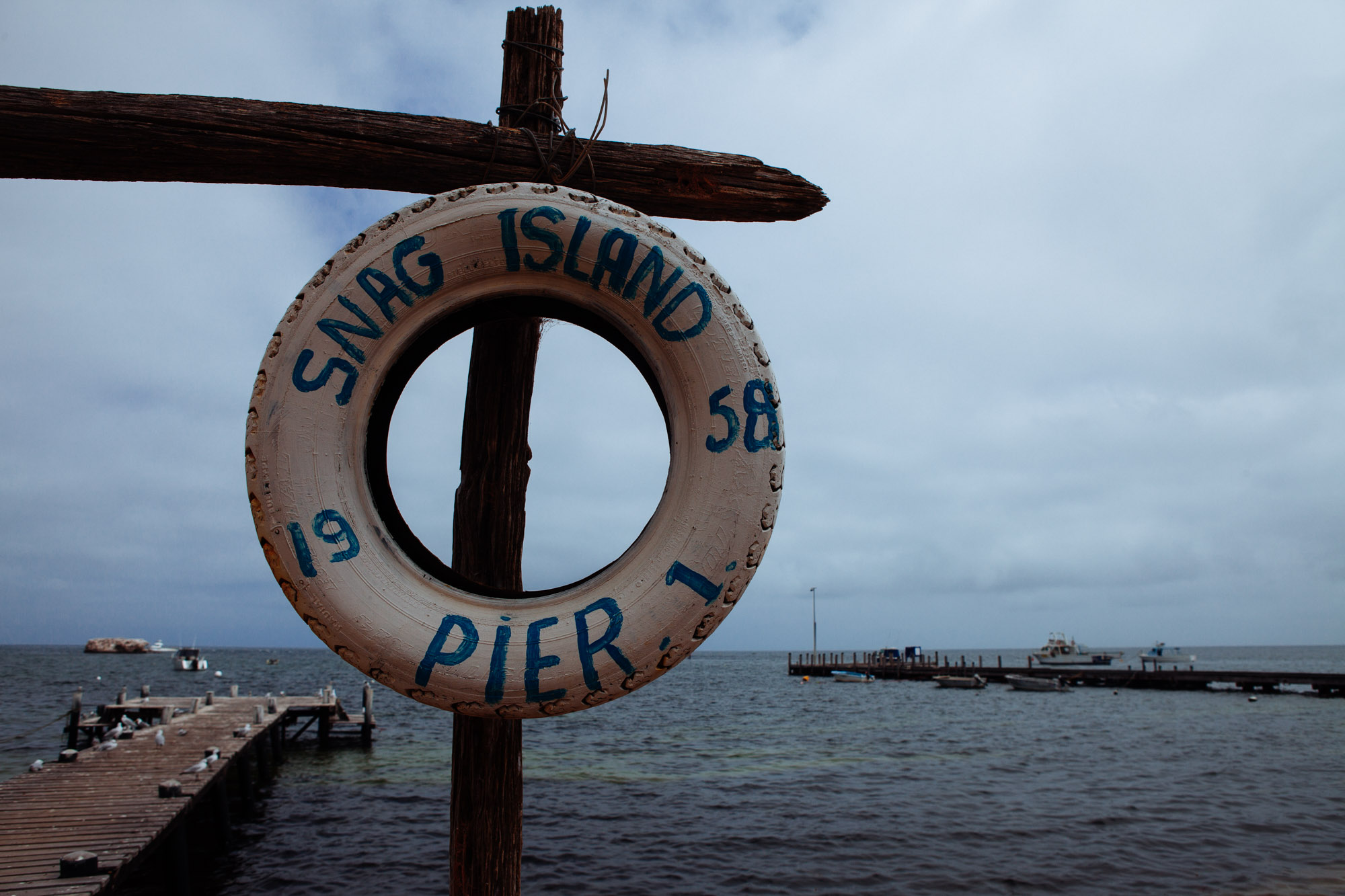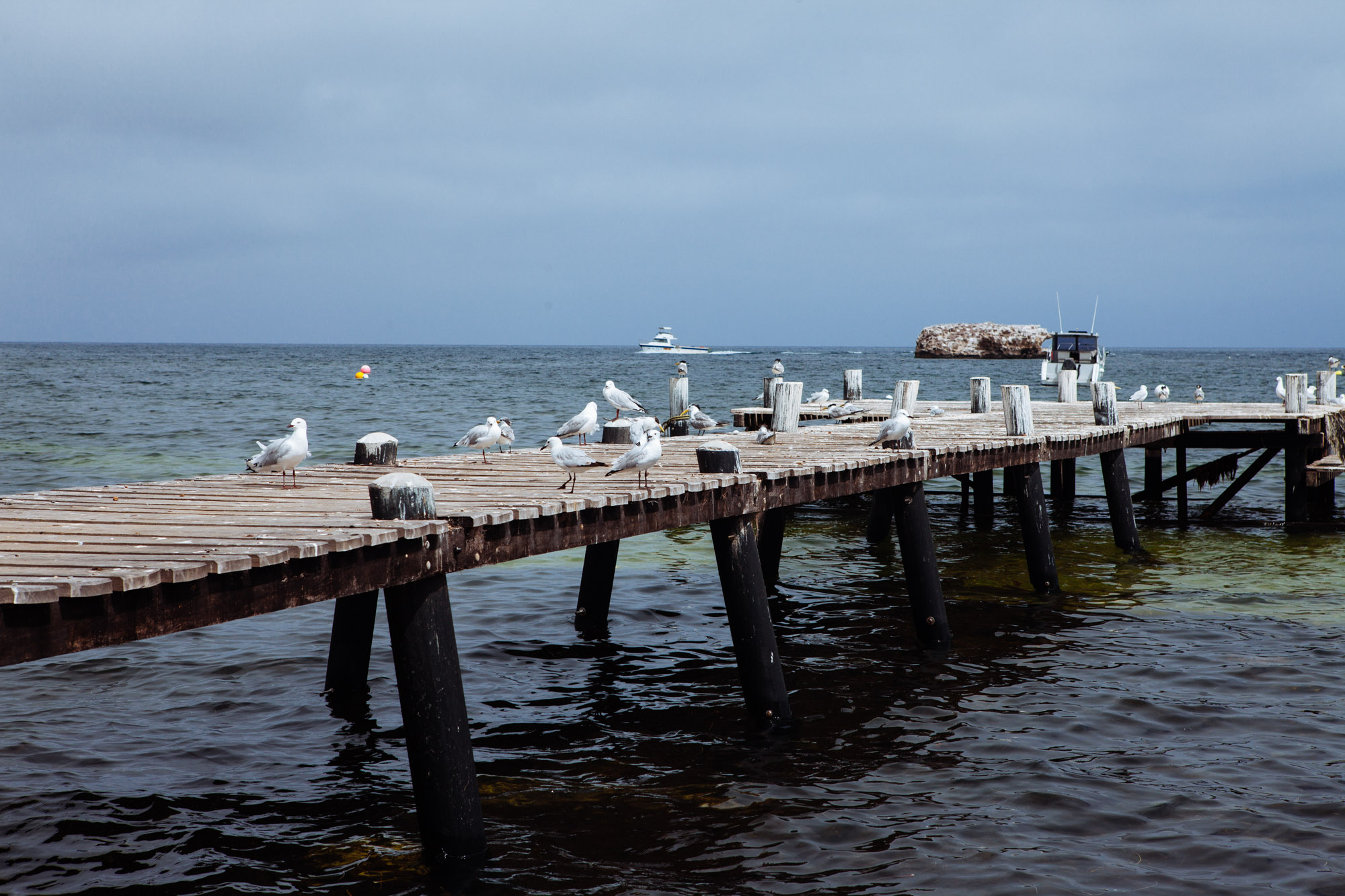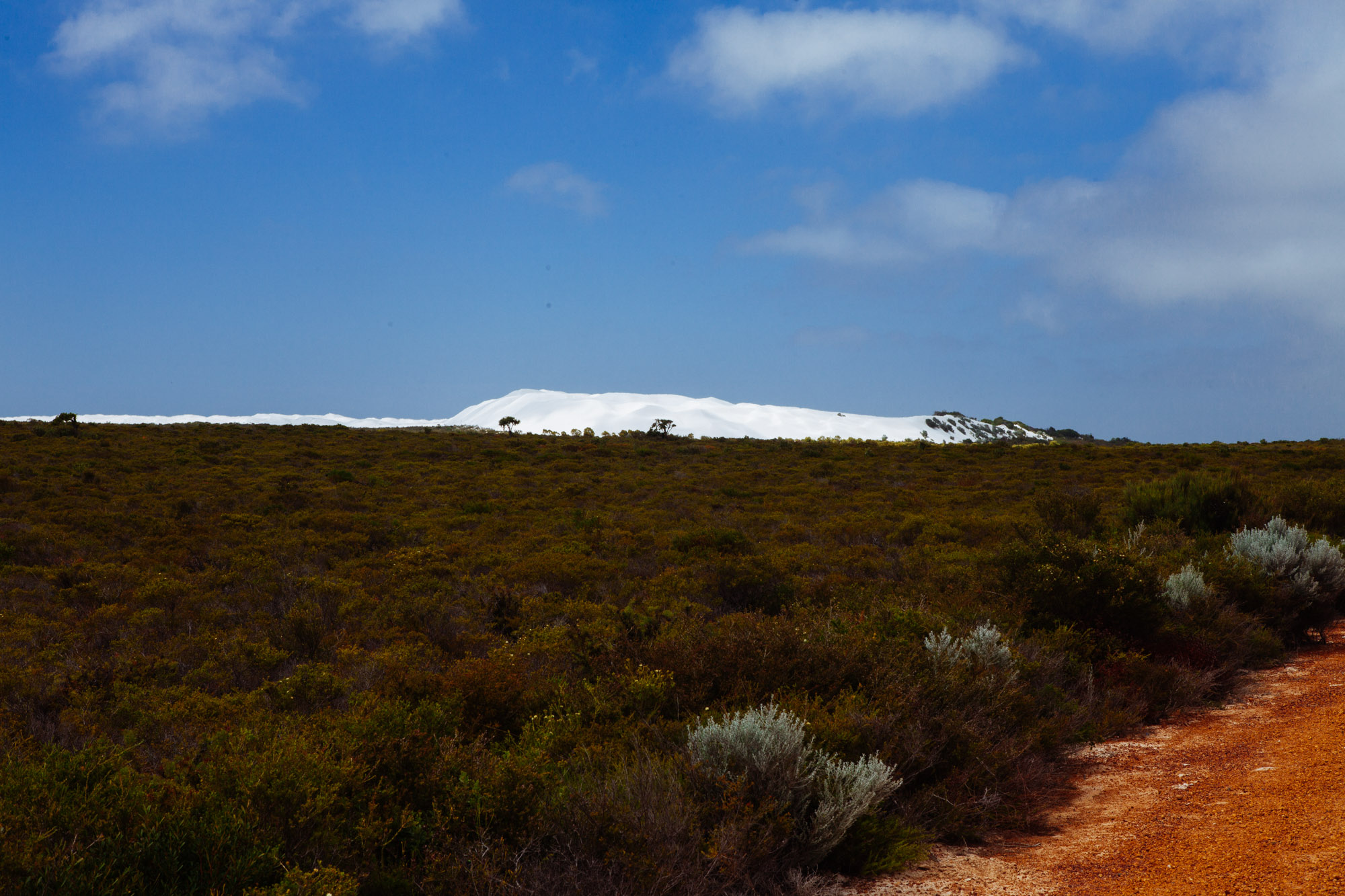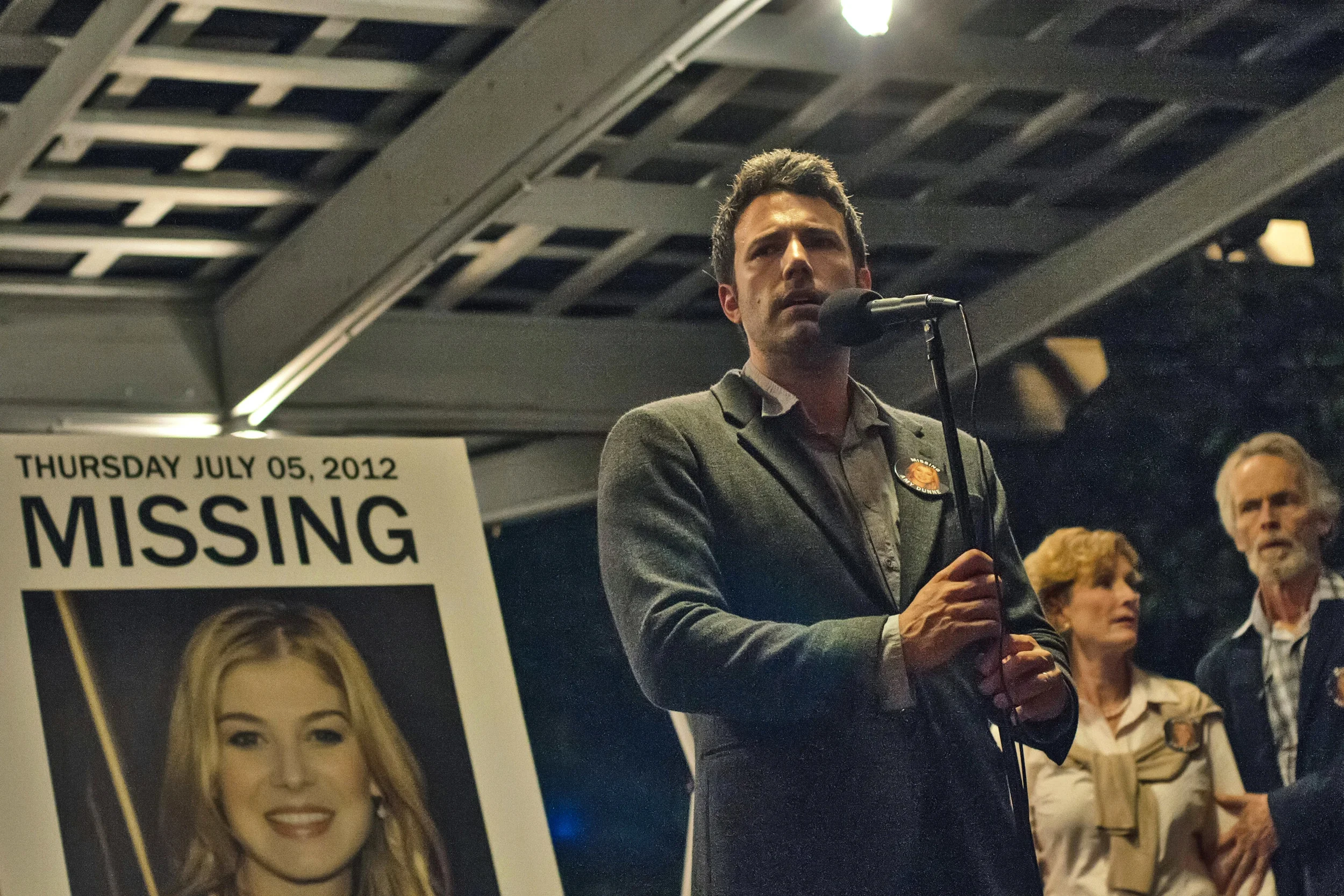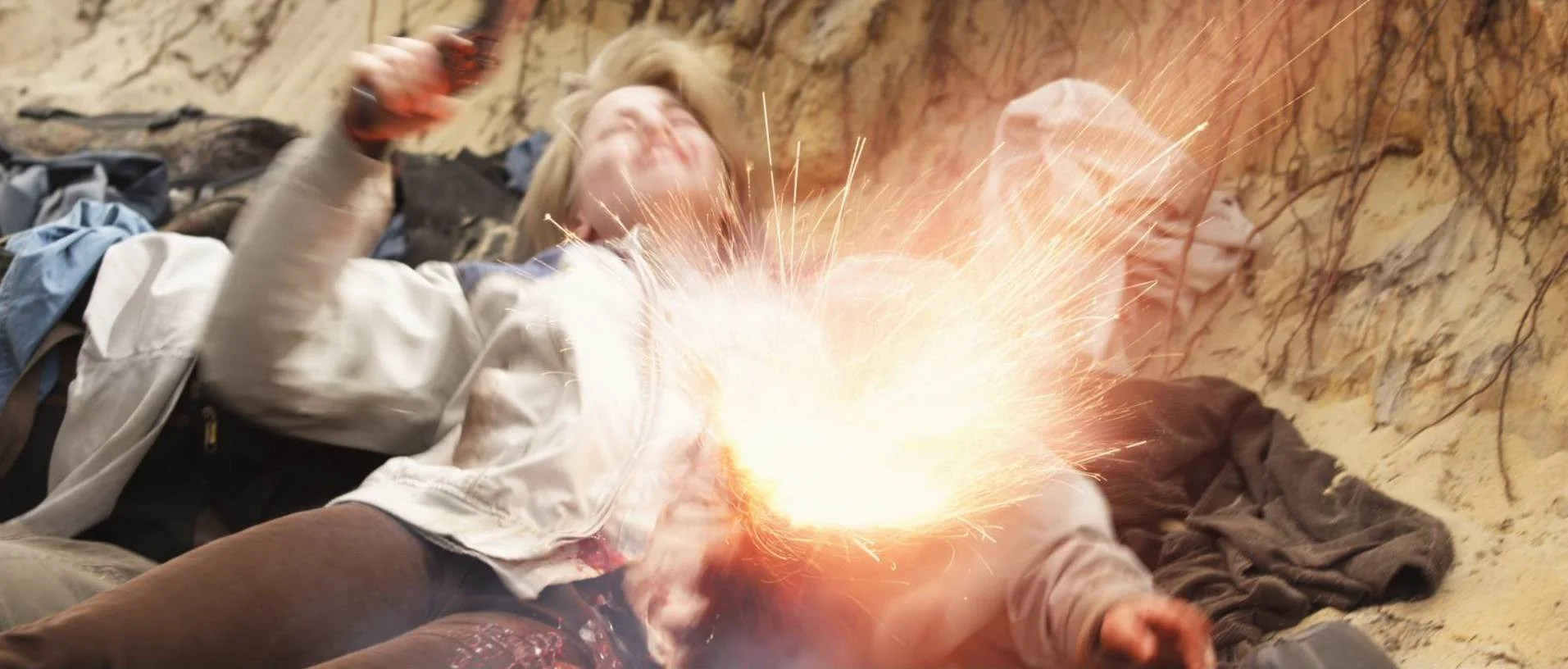Whilst driving back to Perth on my recent trip up to Geraldton for a new project I'm currently developing, I took a few of these shots at Leeman's jetty. It's a lovely little seaside town.
Without a doubt, Gone Girl is one of the best films of the year, and it's editing feels so precise that even the title sequence seems to appear and vanish before at almost a frame after you've read it.
So it's pretty incredible to see the split-screen editing Kirk Baxter and David Fincher were doing to trim this film within an inch of its life, and in doing so made its 149 minutes fly by.
Can't wait to see what these guys do next.
Josh McConville as Dean
Can you tell us how you got the opportunity to make your first film?
The Infinite Man was made as part of the South Australian Film Corporation’s Film Lab initiative. They fully financed a number of low budget films basically off one page ideas. They invited teams to submit ideas and those selected took part in a three week workshop during which we explored the creative process quite broadly. Following the workshop, we were given some development money to go off and write the script.
How did your producers get involved with the project? How did you meet and what did they bring to the creative process?
I have been working with the producers Kate Croser and Sandy Cameron in one way or another since we met at university. They're very creative producers and Sandy is also a writer. We wanted to make a film that didn't feel restricted by its low budget. We wanted to create something where having very few characters and locations would actually work in the film's favour, and help to create something rather unique and unexpected. Sandy and Kate were very involved in this whole process.
How do you find the writing process? What was it like for you and how did you manage a film as complex as this? How did you track it? Outlining the loops and understanding the transitions from one area to another?
It was a long and unusually complicated process. It started with this one page idea that we went into Film Lab with and it changed dramatically from that throughout the writing process. It did involve some diagrams, because as well as being a time travel film it’s set primarily in the one location so it was important everything was mapped out in a way that would actually work when it came time to shoot it. It was just a matter of time. Just spending the time and slowly making it better and better, ensuring that the time travel mechanics added up and it was still an emotionally coherent story. It was a constant juggling act with those various elements and ensuring they each received proper attention throughout.
In terms of direction, how were you able to film it - and for your actors, when they were filming against themselves, to be cut in later. How were they working through that process and getting a rhythm and being able to perform with themselves?
We couldn’t afford any sort of motion control and so it was a very lo-fi approach to those situations. It was often Josh who was acting opposite himself and it was just a matter of getting whoever was free at that point; we were working with a very small crew and certainly didn’t have any dedicated body doubles or anything like that, it was just whoever was free at the time would stand in so Josh could act opposite complete non-actors. I don’t know how he did it. I think he performed remarkably well under pretty tough circumstances. But it didn’t get more complicated than a pretty basic split screen in a two shot and hoping it came together in the edit. We had done enough takes that I hoped we covered ourselves. It was a little bit of luck I suppose. Planning and luck.
In breaking that down, this is a very particular film, for what it does and how were you approaching the scheduling, what were you shooting first? I imagine you started linearly but then were overlapping and picking up the tail. How did you decide to shoot this but first and actually process that? It seems like it presents a lot of challenges.
Yeah, and I don’t think any of us knew what the best approach was. It was quite a low budget affair and so at the beginning we had to decide between going with a script supervisor or an assistant director - we could only afford one of them and we decided with a film like this continuity would be quite important and it certainly was. So we got the film scheduled by the very experienced Vicki Sugars, and I believe she found it one of the tougher schedules of her career. And then of course we went out there and started dropping scenes from the very first day and suddenly someone has to rejig the schedule accordingly. We found that none of us had the time really to do that and we were falling behind and we just realised we had to scratch up some money from somewhere and get an AD out there as soon as possible. So that was late into the first week when we got Drew Bailey out there and things certainly changed for the better after that. Nobody knew exactly how to go about it and we thought, look do we try and make it easy for Josh and try and shoot in some kind of chronological order so that he has some hope of understanding what the hell is going on emotionally for his character. But that just wasn’t going to work, it was just too impractical. We just scheduled in such a way that we would move through things as fast as possible to buy ourselves as much time as possible. It was always changing and it was a little bit crazy on set. We just all hoped it would come together in the edit.
So what did you shoot first? I’m specifically curious for my own purposes, how did you decide what to shoot in order to put it together?
Another factor in the scheduling was cast and we didn’t want to have the actors up there simply waiting around while we were filming one person scenes. So we had Josh up there first and we shot everything that involved him just by himself. Just where he’s kind of waiting around in the first year, a lot of which we cut in the end.
You were the editor on this film in addition to writing and directing. Why would you choose to adopt that role on your own? Was it a budgetary or creative decision?
It was a little bit of everything. I love editing and I do enjoy being that involved from writing through to the very end. I don't know, there’s just something that I find somewhat comforting about it. But certainly there were budgetary considerations as well, we just couldn’t afford an editor especially for as long as I though we would need on the film, we just couldn’t afford someone for that duration, so it seemed like the best option was for me to cut it.
Was there a process, given this was your first film, trying to get an appreciation for the flow and understand how it worked? My hat’s off to you, I can’t imagine being so in my own head for this particularly elliptical film, it’d probably drive me insane. But did you have other external collaborators, other filmmakers or was it just within your team or did you expand outwards for feedback?
We did. We had a couple of screenings for the SAFC and invited a few fellow Film Lab participants, who had films in the initiative. They were mostly local Adelaide filmmakers and we felt it was very important to get those fresh eyes on it to see if people were following and engaging with it. I did feel that it might be helpful for the film if I went a bit insane during the making of it. I thought it might somehow feed into it in an interesting way. But especially in those later stages we were keen to get some fresh eyes on it and we got some great feedback that I think really helped in terms of clarity and emotional engagement with the characters.
Jumping back to the actors, how were there processes like? They come from theatre in some instances, but how did they find keeping track of the story and how were you collaborating in that regards?
We did about a week of rehearsals, and a lot of that was just me explaining the plot and exactly where they were at any given moment. It meant that when we got on set they had a thorough understanding of everything as you would hope. Ultimately they were three very talented actors and it just makes your life that much easier when you’re working with truly talented performers. They knew what they had to do and they did it really well. I just had to keep out of there way, really, and occasionally remind them what was going on in the story and just help guide them through it.
On your relationship with your cinematographer, this film has a distinct look, it’s very Australian but not as typical as you would expect it to be I suppose. How did you develop that look and how was that throughout filming?
Marden Dean shot the film and we’ve been working together since film school at AFTRS and we’ve worked on a couple of shorts together and I don't know, maybe it’s just a style and working relationship we’ve developed over time and it just made that side of things incredibly smooth. When there were so many other pressures and stresses throughout production, it really helped to be working with someone who is a) very talented and b) a very good friend, someone who I’ve worked with a number of times in the past. It was just one of the more enjoyable aspects of the whole filmmaking process, just being able to work with Marden again and do our thing.
I’m interested in your career and how you’re planning that out from this stage. There’s a lot of people in a similar circumstance to yourself who are trying to plan out what their career is going to do. What sort of film represents me most as a director? Is that something you’ve considered to that level, and in making this your first film, is it something you’ve focused on and thought about?
Looking back I don’t know how calculated it was. I just wanted to make a film that in some ways was an expression of myself as a filmmaker and it’s entirely natural that’s what one wants to do. So it wasn’t calculated in terms of building a career but more wanting to make the kinds of films I want to make and would like to see. I just wanted to make a good film. You hope that it’s good enough to get the chance to make a second film. But I didn’t spend too much time thinking about those things. If you want to make films, you want to make good films. Or at least films that are as good as you can make them.
OBVIOUSLY YOU MAKE A FILM IN THE HOPE THAT IT CONNECTS WITH PEOPLE.
Director Hugh Sullivan with Josh McConville and Hannah Marshall (photo by Brendan Cain)
That’s more than worthwhile an intention. We need more good films. In terms of going around the world, how has the audience response been? Has there been a difference between Australian and international audiences?
It premiered at SXSW at Austin in the USA, and it was the first time it was shown to the public, and I think we were all very nervous, a) to see how it would be received by the public and b) to see how it would translate for an American audience - if things like the humour would come across. And it was extremely relieving to see how warmly it was received. It went over very well, we were in the cinema for that first screening and it was great to see it really connect with an audience. Following that we were anxious to see how it would play to an Australian audience and it was a similar response at its Australian premiere at MIFF. It was a great response. We’ve just been thrilled. Obviously you make a film in the hope that it connects with people. That’s all you’re trying to do and for it to succeed on those terms, it's wonderful.
Have you placed much focus on the release strategies? It that’s something you’ve been involved with? How it’s rolling out theatrically and online?
The producers Kate and Sandy, have formed a distribution company with Johnathan Page so they’re really taking care with that. I’m involved in the sense that I’m close with them and we work really closely together but it’s just been them taking care of that and keeping me in the loop. It’s a small release, but it feels right for the film. I’m extremely happy with where we’re showing, in the best possible cinemas for this film which is great. We’ve got Madman doing the DVD/VOD release and I couldn’t imagine a better company to be working with there. It’s exactly as I would have hoped and feel fortunate in that sense.
I WOULD JUST BE PHYSICALLY FITTER NEXT TIME GOING INTO PRODUCTION. I WAS SO WORN OUT BY THE END OF IT, JUST HOBBLING AROUND.
Alex Dimitriades as Terry
Have you placed much focus on the release strategies? It that’s something you’ve been involved with? How it’s rolling out theatrically and online?
The producers Kate and Sandy have formed a distribution company with Jonathan Page so they’re really taking care with that. I’m involved in the sense that I’m close with them and we work really closely together but it’s just been them taking care of that and keeping me in the loop. It’s a small release, but it feels right for the film. I’m extremely happy with where we’re showing, in the best possible cinemas for this film which is great. We’ve got Madman doing the DVD/VOD release and I couldn’t imagine a better company to be working with there. It’s exactly as I would have hoped and feel fortunate in that sense.
Are there any lessons from this film you’d repeat or avoid for next time?
I would just be physically fitter next time going into production. I was so worn out by the end of it, just hobbling around. Wear more comfortable shoes, I don’t know. I think really going into production with the best possible script is invaluable and I wouldn’t move ahead until I was entirely happy with that. I’m sure there are a thousand little things I would do differently but they’re very specific things and deficiencies that I wouldn’t draw people’s attention to that perhaps I would do differently but that’s entirely natural I think.
In terms of the writing, how long did it take you, in focusing on the script, and how did you know you were done? How did you feel you were getting the most out of the concept? When did you decide to put it down?
I thought it was done when we were on set shooting the film. It was time to stop worrying about the script. But it was about two years from beginning to end and it was simply we were going into production and we were supposed to be filming a lot earlier but we all felt the script just wasn’t there yet so we pushed it back to a point where we felt we couldn't push it back any more. I’m glad we did do that, I’m glad we spent that time. On a low budget film it was the cheapest part of the process, where you’re not spending a great deal of money so I was happy to spend the time getting the script right. I knew that if we were going to confine ourselves to a single location with a cast of three it was important it was a strong script. We spent the time on it, but I never felt like it was finished and was rewriting during filming and then again during the edit.
Fantastic. What’s next?
It's perhaps not in a state to be discussing, but I’ll certainly keep you posted.
Are you looking to work in Australia or abroad? Has that opportunity arisen?
I’m very confident it’ll be Australian.
Congratulations on the film and we wish you all the best.
Josh McConville as Dean, Hannah Marshall as Lana
It took the efforts of these people, (and a few others) to help make Casualties a reality.
I'm still really proud of what we were able to achieve over those 4 days in the bush.



